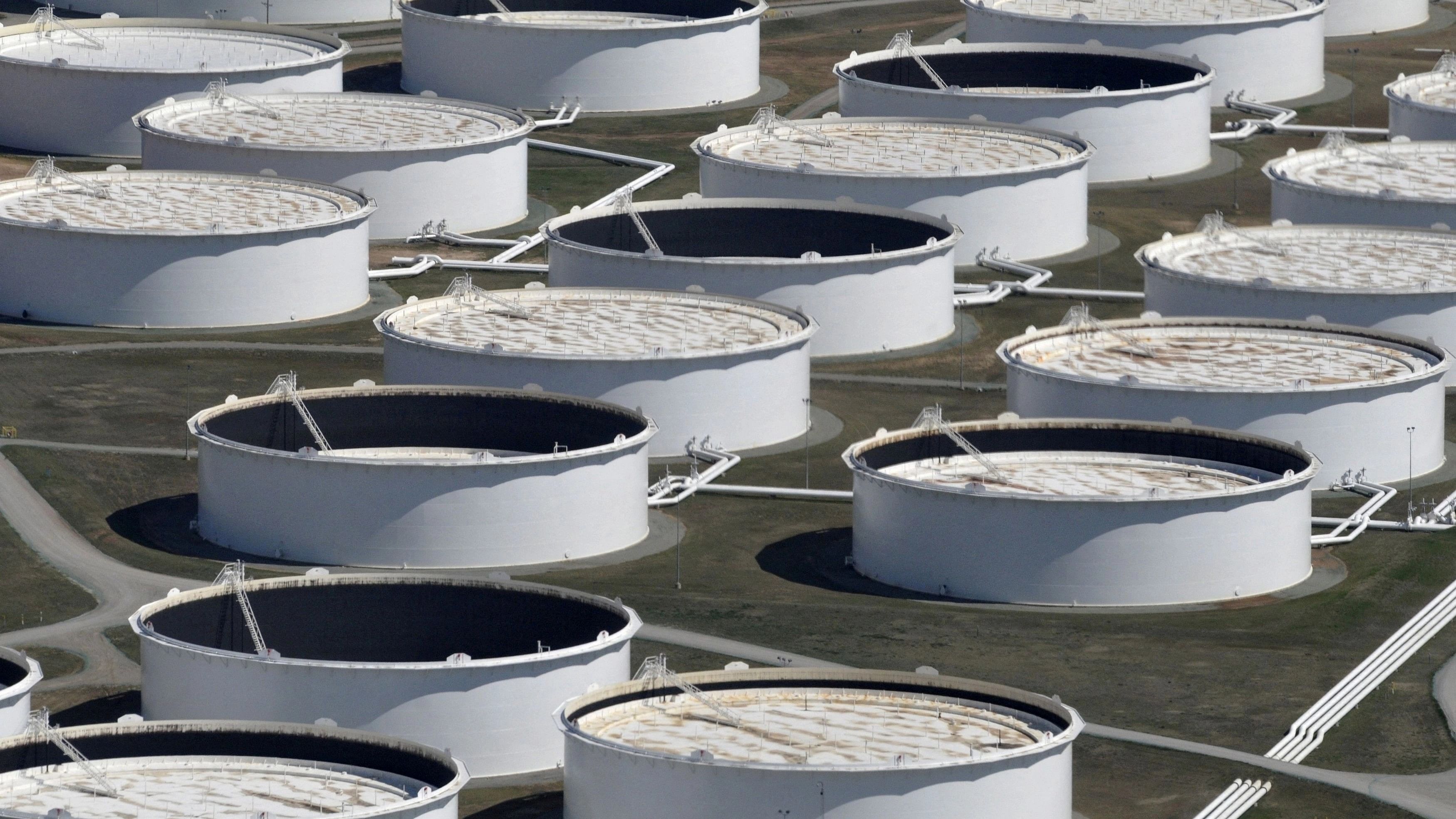
Representative image of Crude oil storage tanks.
Credit: Reuters Photo
Betul (Goa): After dropping a Rs 5,000 crore plan to fill parts of strategic oil storages, the government will lease out space in the underground rock caverns to domestic and international firms to store oil, a top executive said on Tuesday.
India Strategic Petroleum Reserve Ltd has built underground storages at Visakhapatnam in Andhra Pradesh and Mangalore and Padur in Karnataka to store 5.33 million tonnes of oil that can be used in any emergency situation like supply disruption or war.
UAE's Abu Dhabi National Oil Company (Adnoc) has already hired half of the 2.5 million tonnes storage capacity at Padur and 1.5 million tonnes facility at Mangalore. While the remaining 1.25 million tonnes at Padur has been filled by ISPRL, 0.75 million tonnes of vacant storage at Mangalore will be leased out, ISPRL CEO and Managing Director LR Jain told reporters on the sidelines of India Energy Week.
Out of the 1.33 million tonnes of storage built at Visakhapatnam, 0.33 million tonnes was a space that was built for the Hindustan Petroleum Corporation Ltd (HPCL). Of the remaining, HPCL has hired 0.3 million tonnes more, and the rest of the storage will be leased out, he said.
'We will shortly be floating an expression of interest for leasing out of the storages,' he said.
The government in the 2023-24 Budget provided Rs 5,000 crore for filling the vacant slots in the caverns, but by the mid-year that plan was deferred. In the interim budget for 2024-25 presented in Lok Sabha last week, no allocation has been made for the purpose.
Jain said companies like Adnoc can store oil in the storage but India will have the first right to use the oil.
"So, India can call for the reserves in any emergency situation," he said.
Companies like Adnoc use such storage to hold oil for further sale to users.
Jain said ISPRL is also looking at building 5 million tonnes of additional storage in the second phase on a public-private model.
Land acquisition is being done for the second phase of storage, he added.
India, the world's third-biggest oil importer and consumer, imports more than 85 per cent of its oil needs and is looking to expand the strategic storage to protect against supply disruptions.